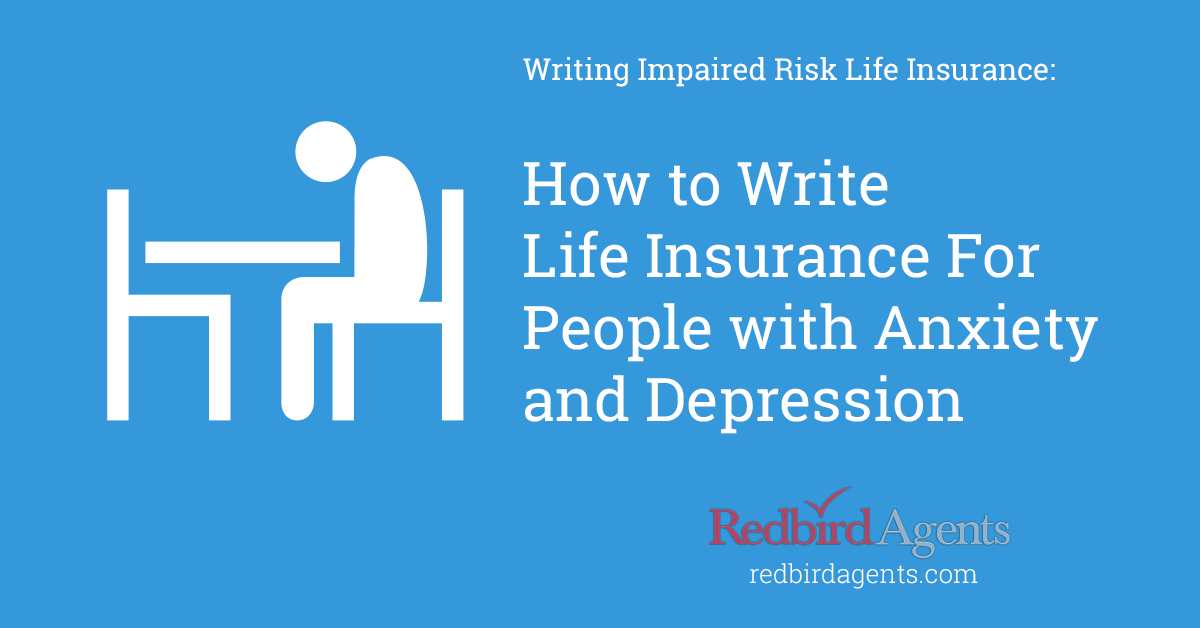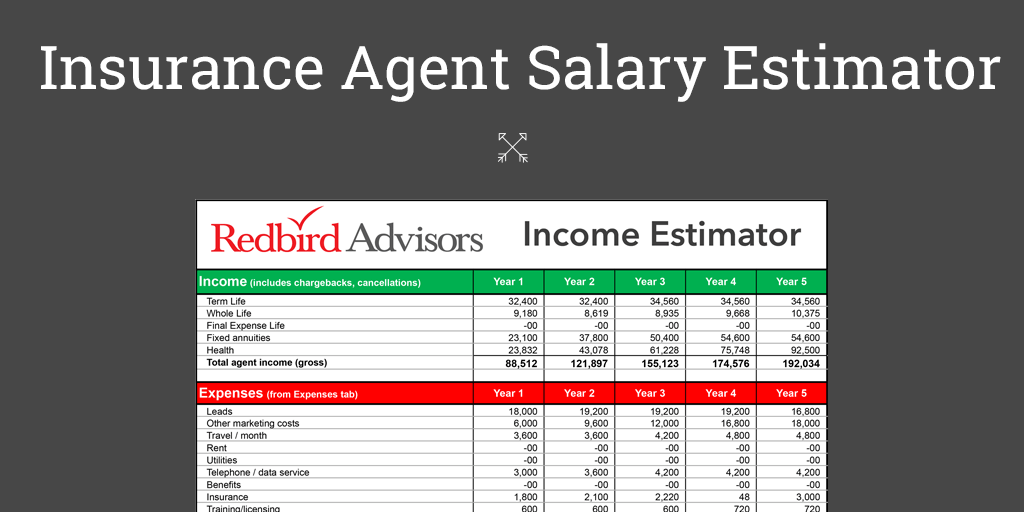
People with depression or anxiety may find it difficult qualifying for life insurance because they have pre-existing conditions, which insurance companies consider as high risk.
However, these folks can still get coverage through impaired risk life insurance companies.
As an agent. understanding of the client’s health history is vital to learning how to be successul selling life insurance. In this instance you would need to know as many details as possible about your client’s depression or anxiety.
Let’s quickly examine what you should know about depression and anxiety before writing your client’s life insurance policy.
What Life Insurance Agents Should Know About Depression/Anxiety
Depression and anxiety are complex mental disorders which develop as a result of genetics, personality, brain chemistry or unfortunate life events. These two disorders often occur in tandem and result in feelings such as panic, worry, sadness. confusion and hopelessness.
Those suffering from depression/anxiety are also irritable and may feel that their life is worthless, which leads to thoughts of suicide. There are physiological manifestations as well, such as cognitive impairment, fatigue or loss of appetite.
Depression or anxiety can also be triggered by other serious health conditions, such as cancer and heart disease. Thus, the complexities surrounding depression/anxiety make it difficult to write impaired risk insurance for persons with this condition.
How to Write Life Insurance for People with Depression and Anxiety
Step 1: Identify the diagnosis date
Determine the date they were diagnosed with depression or anxiety.
Step 2: Determine the type
Establish the type depression/anxiety the client suffers from.
- Bipolar disorder, also known as manic depression, manifests in a mood cycle shifting from severe or mild highs to extreme lows (depression). Its causes are traceable to genetics, brain-chemical imbalance, hormonal problems, biological traits, and environmental factors.
- Post-traumatic stress disorder (PTSD) develops in some individuals who had experienced a dangerous, shocking or scary life events, such as sexual assault or war experience
- Situational depression occurs as a short-term aftermath of traumatic changes in a person’s normal life, such as divorce, loss of a job, retirement, or the death of a relative or close friend
- Panic disorder or panic attack is characterized by a sudden onset of extreme fear, with such physical manifestations as accelerated heartbeats, trembling and sweating. Those who suffer this condition suddenly fear losing control or feel like going crazy.
- General anxiety comes in the form of exaggerated, excessive worry about everyday life occurrences but with no apparent or obvious reasons for such a seriously disturbed behavior.
Step 3: Understand the Cause
Ask the client what is causing the disorder and if this has been established by a qualified doctor.
The information that you will gather will help you determine if the client’s condition is being managed well and the health issues are properly addressed. This is important information for a life insurance underwriter.
Step 4: Document severity
Inquire on the frequency and severity of the depression/anxiety symptoms. This will enable you to determine what type of insurance the client would qualify.
Step 5: Get a list of the medications
Ascertain the type of medication prescribed to the client to address his/her depression anxiety. Knowing the medicine prescribed will enable you to confirm the type of depression/anxiety a client has and if it is indeed well-managed.
Step 6: Any hospitalizations?
Check if your client been hospitalized due to depression/anxiety. Get as much details as possible, as hospital confinement and its frequency indicate the severity of the condition.
Step 7: Ask about Suicide
Probe on the client’s suicidal thoughts or tendencies. Such a client behavior will jeopardize his/her ability to have insurance coverage, given that this state of mental health obviously points to a higher client mortality rate.
Step 8: Review lifestyle restrictions
Has depression/anxiety limited the client’s ability to function socially? If so, ask details. An active social life despite the condition is a plus point for the client to get insurance coverage as it indicates just a mild depression. Conversely, absence of social life is an indication of the severity of the depression/anxiety, which would affect the class of insurance which could be granted, if at all.
Life Insurance Underwriting for Depression and Anxiety
You will need to make a judgement call in writing life insurance for clients with depression or anxiety. Subjective factors rather than measurable facts (such as physical build or heart disease) are at play in these health conditions.
As you take on the role of a field underwriter, you need to be sharp in drawing inputs from your client interviews.
Be prepared too for a time-consuming process, because, more often than not, you will need to study more than one APS’s (Attending Physician Statement).
Conclusion
Depression and anxiety are complex conditions that can impact life insurance eligibility. Your success in writing an impaired risk life insurance for clients with this health issue would largely depend on an accurate assessment of its severity, its life impact on the clients, as well as management and progress of their treatments.
By and large, insurance applicants with depression and anxiety are difficult and challenging clients to underwrite. However, you can help provide them with the right class of insurance suited to their specific need and condition when you collect the right information up front.
For more insights on how to write impaired risk life insurance, check out our guide HERE


